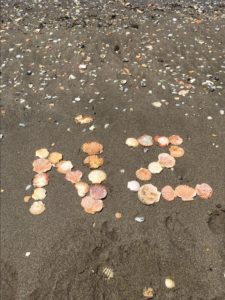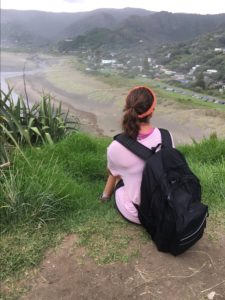How New Zealand Changed My Future Career


STEM and study abroad: are they mutually exclusive?

Ever since my first semester at Tulane, I can remember hearing about study abroad events. As an undeclared biomedical engineering major, I ignored the study abroad fliers passed around in my core classes, the invitations to attend seminars about studying abroad, and the presentations by liberal arts majors who studied abroad. As far as I knew, everyone studied abroad in their junior year fall semester…except the engineering majors. Engineering students rarely studied abroad.
Towards the end of my second semester at Tulane, I had become irritated that engineering students were not specifically encouraged to study abroad. Luckily for me, my general advisor shared my sentiment. When I entered her office to design my third semester schedule, I asked her about studying abroad. I knew that it would be hard to structure my schedule to study abroad due to Tulane’s specific lab requirements, but I also knew that it could not actually be impossible. After an hour-long appointment which was originally scheduled for only fifteen minutes, we decided that I would study abroad the following spring.
Putting the “study” in study abroad

After a summer of program applications and hectic emails to my professors for recommendations, a fall of research into which programs would be optimal for me, an acceptance letter from IFSA-Butler, and finally a winter of packing, I arrived in Auckland, New Zealand. I was nervous, excited, and definitely confused by my new eating schedule of waking up to my stomach growling at 3 am.
Ultimately, I was thankful. I couldn’t believe that I could attend school for a semester in New Zealand, without a “Tulane engineering student” label stamped on my forehead. Although I had designed countless schedules that incorporated engineering requirements back home, my major advisor encouraged me to loosen up a little by taking elective credits unique to the University of Auckland. I found myself enrolled in a business class, an environmental science class, a public health class, and a pacific studies class. It was a time to discover a side of academia that I had never had the chance to appreciate before.
Many STEM majors fear veering off of the traditional tracks that their universities recommend, but at the end of the day, these are just recommendations. There is more than one possible class schedule to accomplish a degree. By taking my professional electives all at once during my semester abroad, I have freed up my fall schedule enough to even go part time during my senior year for a semester.

However, I have to distribute a few of my core credits during my remaining spring semesters. Although this is not the “traditional” route of taking the classes I need, I have realized that I have freedom in designing my schedule, and that there is no right or wrong way in completing the credits that I need. Tulane, and many other universities, will help you fulfill your credits abroad; you can graduate in a timely manner and study abroad as a STEM major, like I did!
By taking classes in a wide range of disciplines, I was able to adjust my vision of life after college because I now recognize values in other career paths. For example, my business class made me reevaluate the idea of global industry. It was in this class that I learned about the art of promoting novel technology.
On another note, my public health class introduced me to health issues particular to New Zealand, in which I was able to realize the importance in personalizing solutions even as I engaged more deeply with my host country. This idea was further enforced in my pacific studies course, where I learned about various pacific nations and their cultural values relating to relationships, nature, health, and celebrations. Each nation has a unique culture that impacts their susceptibility to problems and their response to solutions.
The University of Auckland emphasizes interdisciplinary study, or the idea that distinct courses can appear unrelated but profoundly influence one another. This concept extended throughout the courses that I took abroad, improving my ability to problem solve and expanding my creativity.
Embracing the “abroad” in “study abroad”

The other aspect of the term “study abroad” that I have yet to mention is the abroad aspect. Being abroad allowed me to completely flip my comfort zone on its head. I was exposed to new foods, new music, new study habits, new people, new histories, new time zones.
I took advantage of a two-week long semester break to travel to Cambodia and Thailand, where I was once again exposed to new lifestyles, along with an unfortunate encounter with a foreign stomach virus. Although I can say there were aspects of my travels that I liked and others that I did not like, I can overall say that I have developed a passion for traveling; as such, I have altered my career goals to embrace it.
My new career goal is to work in an engineering firm with global connections, so that I can promote medical devices worldwide. However, I would like to work with firms to personalize devices for the populations exposed so that they abide by cultural practices and relate to the prevalence of problems unique to the area.
Traveling the world, improving lives, feeling intellectually challenged, and continuously improving my communication abilities are all aspects of global industry that will fulfill my goals as both a working woman in engineering and as a growing human being. College students can often lose sight of our goals in the latter, but being in an environment away from everything that we know can allow us discover what will make us happy: the ultimate goal for me.
Put your happiness first
It is on a conclusive note that I ask students to ask yourselves what makes you happy, and to ask you to think about your options. My advice to future STEM students is to permit yourself to consider studying abroad. I know that this is a question that you may have felt excluded from, because our paths of study are not exactly flexible. But ask yourself, if there was a way to study abroad, and studying abroad is something that you desire to do, why should you write yourself out of this experience? Ask for help from your advisors, contact your Study Abroad office, and talk to people who have been in your position. Find a way to accomplish this dream, because you will not regret it. All you have to do is think about it, ask about it, and finally, demand it.
Hannah G. | Biomedical Engineering student | Tulane University | University of Auckland Partnership | Spring 2018